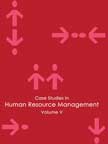Reorganizing ABB - From Matrix to Consumer - Centric Organization
Structure (A)
|
|
ICMR HOME | Case Studies Collection
Case Details:
Case Code : HROB032
Case Length : 15 Pages
Period : 1998 - 2002
Pub Date : 2003
Teaching Note :Not Available
Organization : ABB
Industry : Power, Transportation, Financial Services
Countries : Switzerland
To download Reorganizing ABB - From Matrix to Consumer - Centric Organization
Structure (A) case study
(Case Code: HROB032) click on the button below, and select the case from the list of available cases:

Price:
For delivery in electronic format: Rs. 300;
For delivery through courier (within India): Rs. 300 + Rs. 25 for Shipping & Handling Charges
» Human Resource and Organization Behavior Case Studies
» HRM Short Case Studies
» View Detailed Pricing Info
» How To Order This Case
» Business Case Studies
» Area Specific Case Studies
» Industry Wise Case Studies
» Company Wise Case Studies

Please note:
This case study was compiled from published sources, and is intended to be used as a basis for class discussion. It is not intended to illustrate either effective or ineffective handling of a management situation. Nor is it a primary information source.
Chat with us

Please leave your feedback

|
|




<< Previous
The Matrix Structure
|
ABB was formed on January 5, 1988, as a result of the merger between
Sweden-based engineering group, Asea AB, and Switzerland-based Brown Boveri
Limited. Both the companies had a history of around 100 years and were major
competitors in the electrical equipment market in Europe. Barnevik took over as
the CEO of ABB, headquartered at Zurich (Switzerland).
Given the massive size of ABB's operations, the challenge for Barnevik was to
create a structural framework into which its worldwide activities could be
integrated. Barnevik intended ABB to be "global and local, big and small,
radically decentralized but with central control."6 In an attempt to achieve this
objective, he created a matrix structure.
|

|
The Top Management Level
The matrix structure consisted of four management levels, with clearly
defined responsibilities at each level (Refer Exhibit II). The first or top
level of the matrix structure consisted of the Group Executive Management
(Refer Exhibit III), whose members included the President & CEO - Barnevik,
Deputy CEO and eleven ABB Executive Vice Presidents (EVPs).
|
|
The primary task of the Group Executive Management
(GEM) was to devise global strategies and periodically review the
performance of ABB's eight business segments spread over 28 business
regions. The members belonged to different nationalities and met
once every three weeks to discuss business developments. A few
members of the GEM were assisted by the corporate staff in certain
specified fields, which included audit, corporate control, corporate
development, corporate finance, information, insurance and risk
management, investor relations, legal affairs, management resources,
marketing, public finance, purchasing and export control, real
estate, corporate research, taxes and customs and technology. |
The allotment of corporate staff to the EVP'S was based upon
the requirements of the business segment headed by them. For example, Lars
Thunell, who headed the financial services business segment, was assisted by
corporate staff in the fields of corporate finance, insurance and risk
management, investor relations, and project finance...
Excerpts >>
|
|









